Reader Request: You voted on which Jennifer Jones films we had to write about for her centennial and this was your top choice. So it's your fault, then.
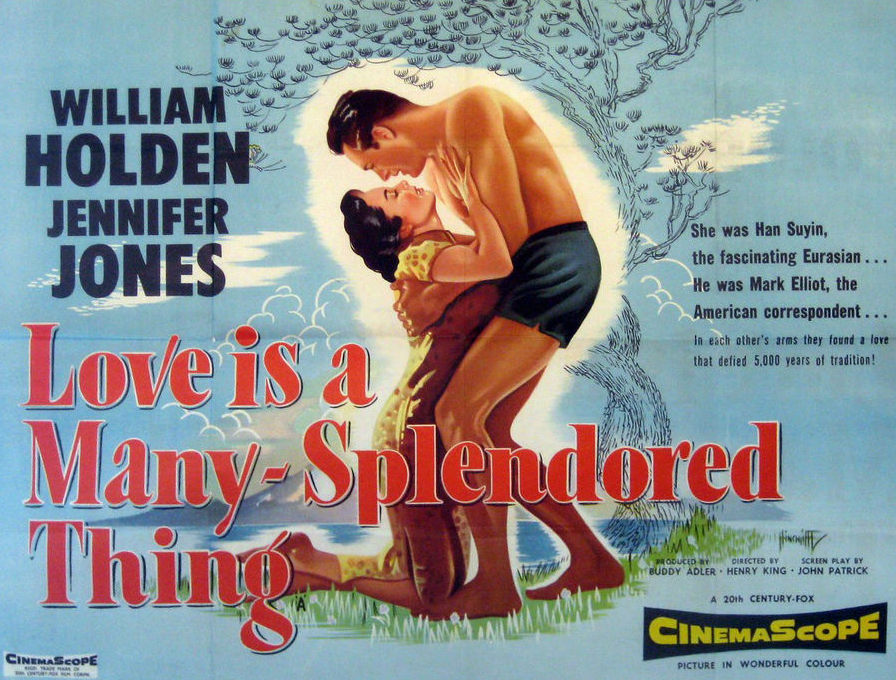
One of the tag lines reads...
In each other's arms they found a love that defied 5,000 years of tradition!
'Defying tradition? But what's more traditional than Hollywood casting white stars in Asian roles?' he said sarcastically. Figured we should get this out of the way upfront and then try to ignore it: Jennifer Jones's last Oscar nomination came for playing Han Suyin, a biracial doctor, who falls for Mark Elliott, an American foreign correspondent (William Holden) in Hong Kong...
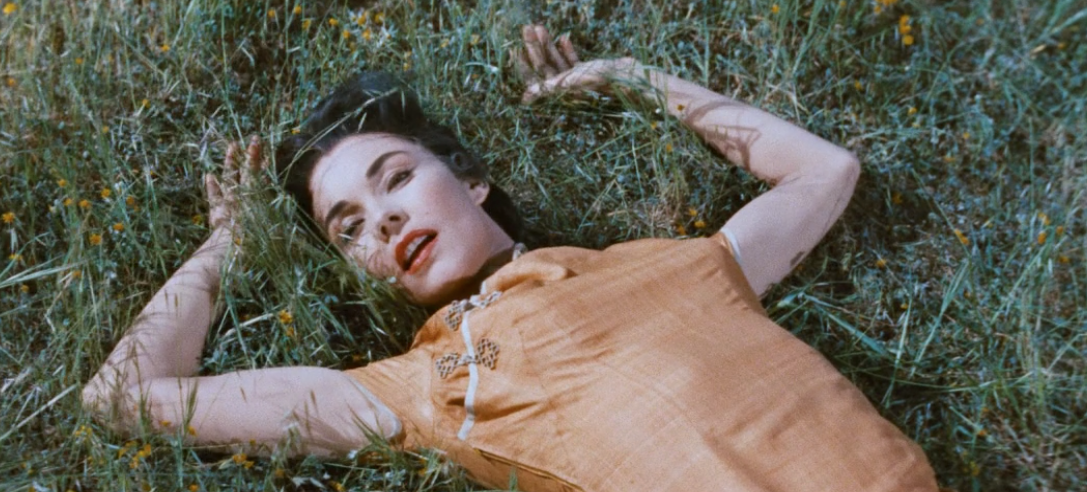
And. Well.
What else is there to say about it? The extremely barebones plot is the love story, set against the backdrop of political tensions in the East (Chinese refugees pouring into Hong Kong and North and South Korea at war). Since its an interracial love story set in 1949 we expected some heavy and perhaps dated messaging around race and prejudice, but there's not even much of that. The only objection the Hong Kong community they socialize with has to the central couple is that he's already married and that they are so public an item.
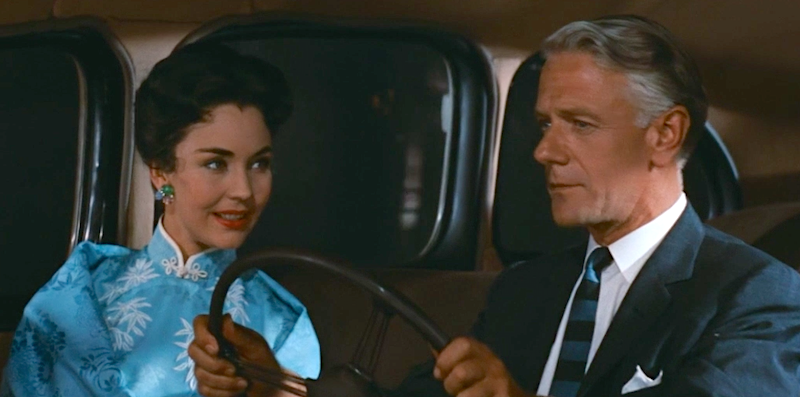
-He's married Suyin.
-So are you, John, and I go out with you.
-I happen to be in love with my wife. He is not.
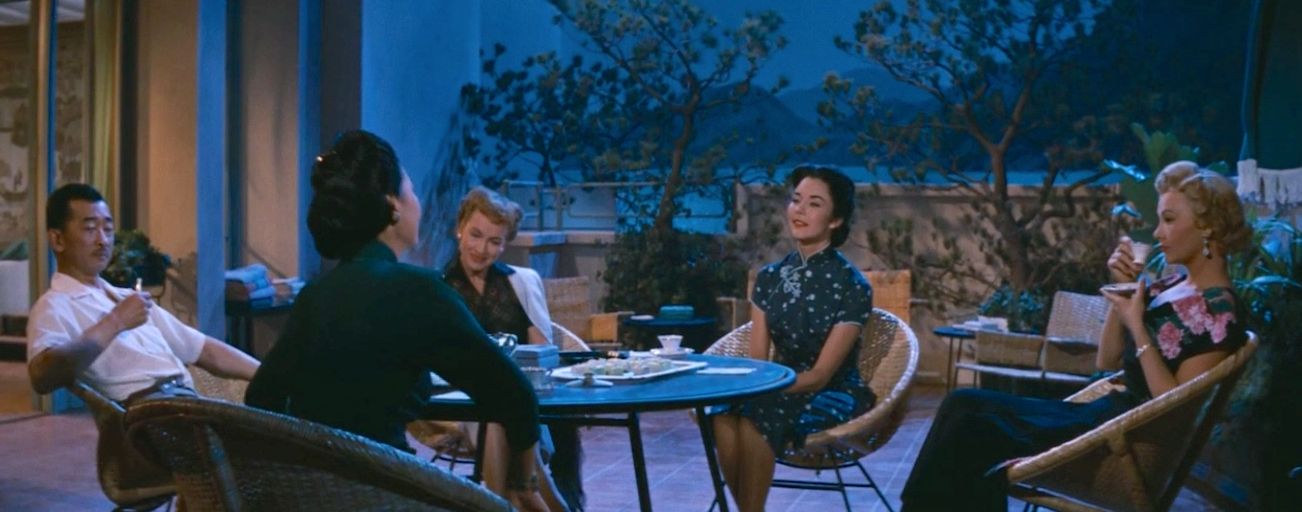 The ensemble of friends discussing Mark's marital status again.
The ensemble of friends discussing Mark's marital status again.
She's perpetually warned about this which did not seem unreasonable, even from progressive-minded friends since she spends the first act of the movie declaring that she's not actually interested in dating or love. The lady doth protest too much.
About those friends. While Love is... is a romantic drama first and foremost the ensemble cast is unusually vivid given how tremendously little they're actually tasked with. So cheers in particular to Murray Matheson as Doctor John Keith, Richard Loo as Robert Hung, Virginia Gregg as "practical" Anne Richards and Jorga Curtright as Suzanne who can "pass" as white and advises Suyin to do the same (which might have been an interesting scene but for the lack of any scenes elsewhere suggesting that racism exists). These modern eyes looking back at a now creaky love story, wanted more of all of these people. What's their story? Why are they all so sophisticated, accepting, generous, and wary simultaneously. Why do they love Suyin so much? For a movie based on an autobiography we dont get much background about the protagonist beyond her education, or much interiority besides the basics: she loves being a doctor (though she'll drop it at a moment's notice to spend time with her lover), considers herself Chinese despite being biracial, and loves Mark Elliott madly and all-of-a-sudden for reasons unbeknownst to us watching.
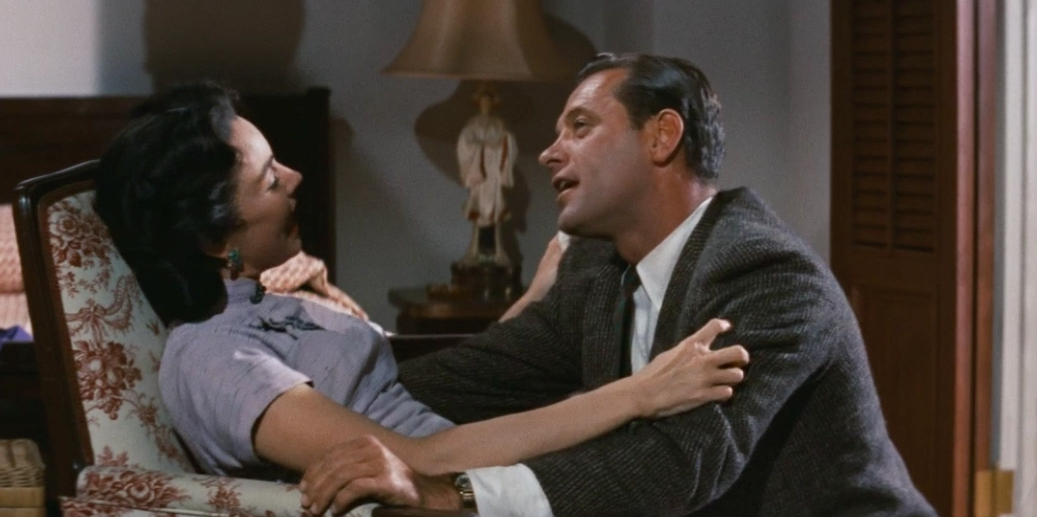 The most relaxed Jones and Holden will get with each other in the movie. And their kissing is still awkward and brief.
The most relaxed Jones and Holden will get with each other in the movie. And their kissing is still awkward and brief.
What little tension the movie has, comes from minor troubles the new couple has -- first, about whether or not they're actually "dating", second about how much time they do or dont spend together -- and the word "Eurasian" which is voiced 100 times in the movie by either Suyin or Mark, and usually as some sort of daunting identifier that must be addressed: Is she European or is she Chinese? Which side of her is making the decisions on their dates?!
All of this could be forgiven under "time eventually makes all movies 'problematic' since society keeps on changing" if Jones & Holden had great chemistry. That's not an unreasonable expectation with William Holden and leading ladies. But these two run only as hot as, well, the hospital's orange juice that bitchy hospital patron Adeline Palmer-Jones (Isobel Elsom) complains about. Out of curiousity I looked up anecdotes on line and apparently Holden and Jones did not like each other. Sometimes personal animosity magically makes screen chemistry even better (see: Winger & Gere in An Officer in a Gentleman) but in this case it's an issue. Since Jones favors a very pre-method acting style, operatically pure emotions (Jones would have been a great silent film star) without complicating subtext, and since so many of her personal reveries take place at the top of a hill with a lovely view, it seemed at any moment that she and Holden might break out into singing the title song together (it's as woven into the score as "The Way We Were" was into its film, which is to say that you'll be humming it for days if you watch this: Fair warning!). It's easy to picture it as a musical, given the big but broadly drawn emotions and its desire to have you swooning.
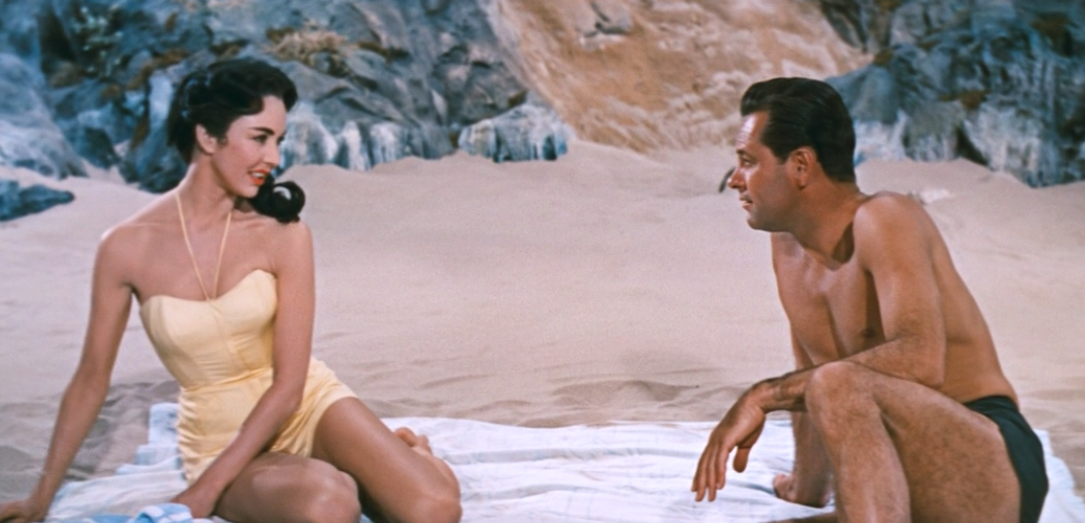
But the only scene that raises the temperature is a swimming scene. Is it coincidental that the moment Suyin finally lets her hair down (literally) with her suitor is when he takes his shirt off? It was always a good idea to get William Holden naked in the 1950s.
Movie directors and studio advertising departments obviously knew this back then.
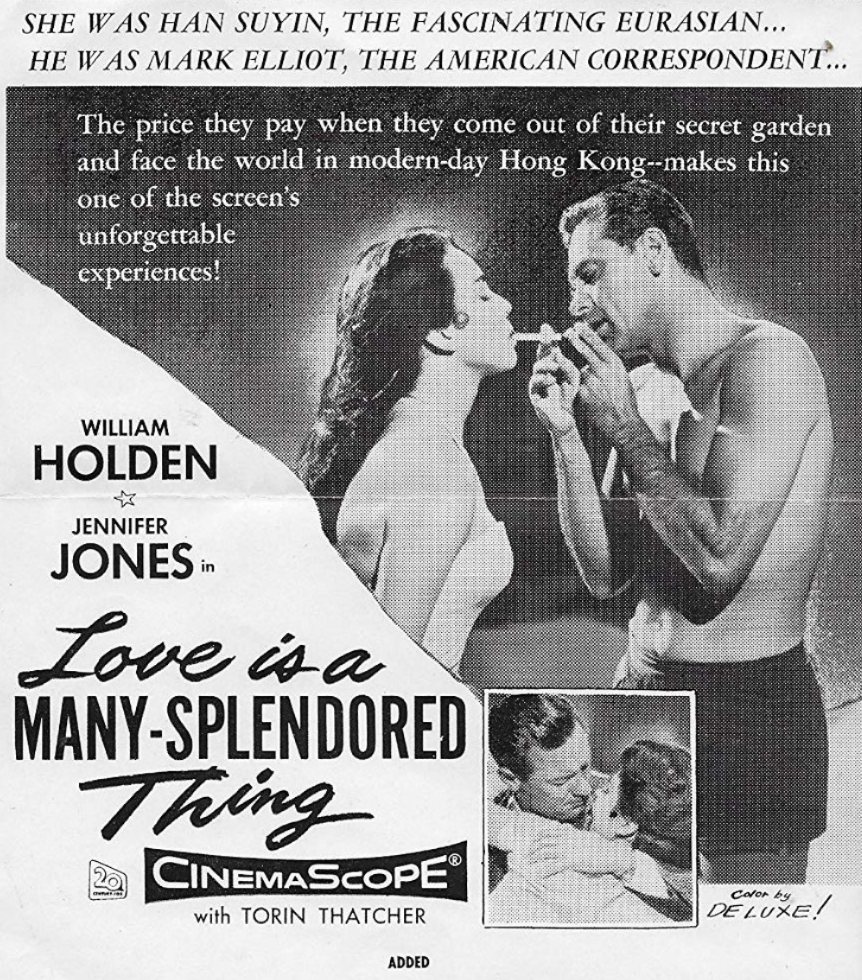
But what else accounts for the movies appeal? Was it the travelogue nature, with multiple street scenes in Hong Kong and Macau and helicopter views of these "exotic" places? The 1950s were big on films shot abroad where people could gawk at places they'd never seen outside of books.
It hasn't aged well but in its day Love is a Many-Splendored Thing was well-received. It was nominated for eight Oscars including Best Picture and Best Actress. It won three: Best Costume Design (Jones wears a cheongsam in just about every color and they all look smashing on her), Best Score, and Best Original Song, the title song was very popular going to #1 on the charts of the time. The movie was even a big enough hit to be spun-off into a television soap opera a decade later, a show with its own problematic history. The soap originally centered around the daughter of Jones & Holden's characters in the film (a narrative leap that suggests a racier film than we just watched!), all grown up and living in San Francisco. This time an actual Asian actress (Nancy Hsueh) was cast. But since it was a soap opera CBS was upset about the prospect of interracial love stories and the character was written off the series within months!
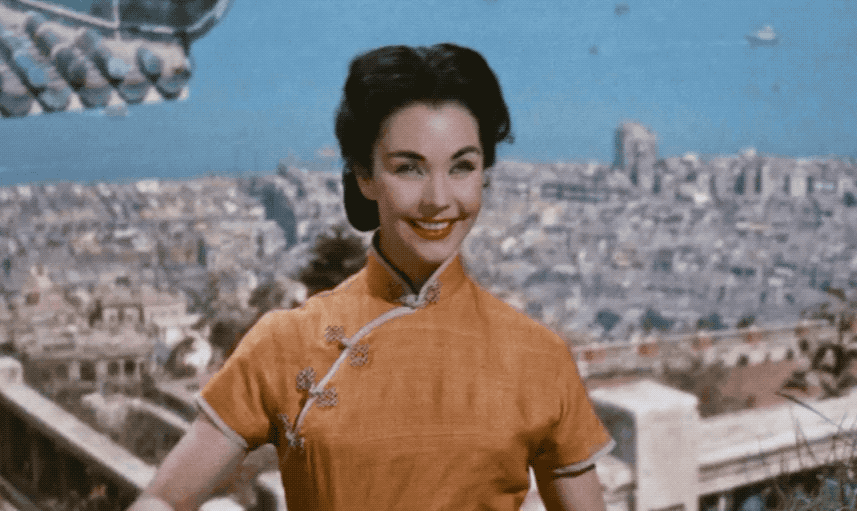
We hope you enjoyed our short Jennifer Jones respective: the career overview, Cluny Brown, Indiscretion of an American Wife, and Love is a Many-Splendored Thing. If you'd like more, on recent Supporting Actress Smackdowns we discussed The Song of Bernadette and Since You Went Away.